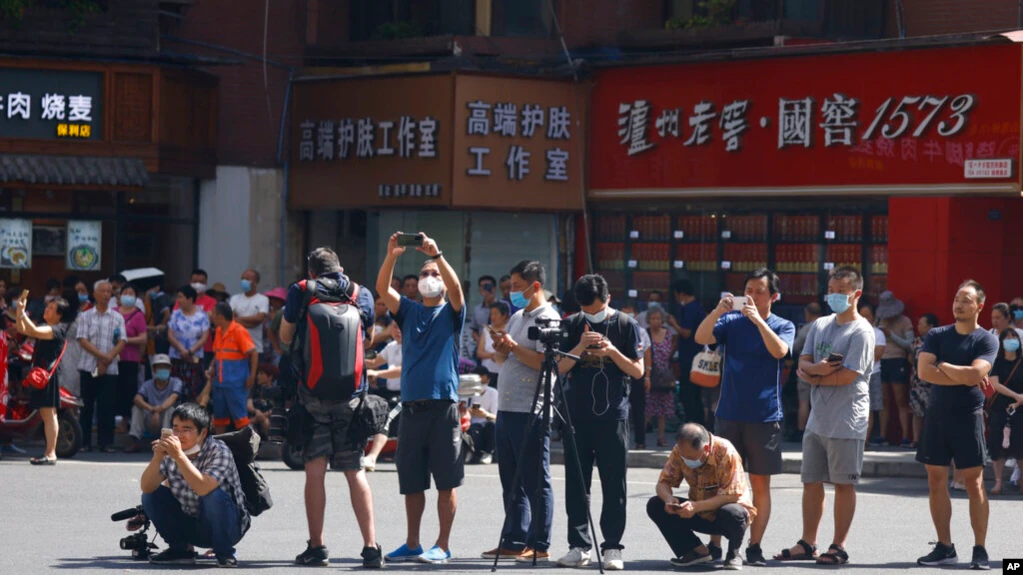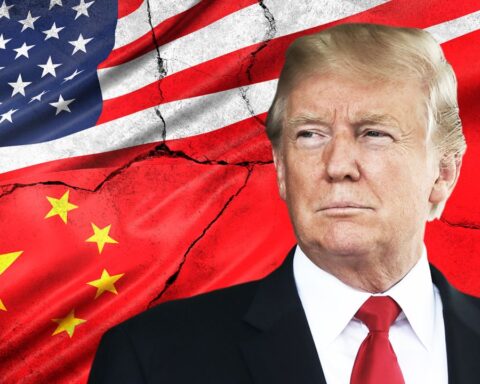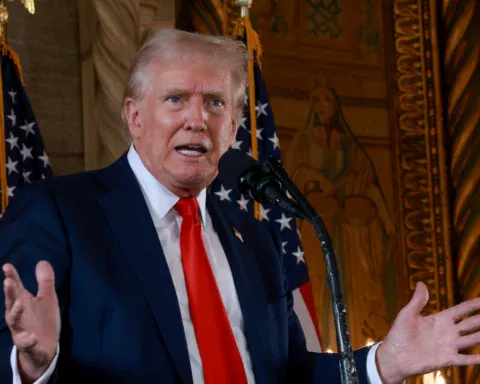WASHINGTON — The United States and China agreed this week to ease restrictions on foreign journalists working within their respective borders, but the deal is drawing criticism for not doing enough to address China’s repressive stance toward press freedom.
Steven Butler, Asia program coordinator at the Committee to Protect Journalists, a New York City-based press freedom organization, called the agreement a “step in the right direction” but said it failed to take into account that foreign journalists in China are routinely “mistreated, mishandled and denied visas arbitrarily.”
For many years, China has tightly regulated the number of foreign reporters granted visas to work there and canceled the visas of reporters who produce stories critical of the ruling Chinese Communist Party.
Last year, both countries issued escalating policies that restricted the work of journalists.
In February 2020, the State Department officially designated five state-run Chinese news organizations in the U.S. as arms of the Chinese government. The department then reduced from 160 to 100 the number of Chinese citizens employed by the five news organizations allowed to work in the United States at one time and reduced the duration of their visas from one year to 90 days.
Beijing authorities in response expelled numerous journalists who work with major American news organizations in China, leaving them with limited staff to conduct reporting.
The deal struck this week relaxes some of those restrictions. Chinese journalists will be given one-year multiple-entry visas. China pledged to give American journalists equal treatment once the U.S. policies come into force.
While the deal could improve news coverage of China by allowing more reporters there, press freedom critics say it’s not worth it given that China is one of the world’s biggest jailers of press freedom defenders. In 2021, Reporters Without Borders ranked China 177th out of 180 countries in its press freedom index.
“There is a problem with the concept of trading (U.S.) independent media access to a dictatorial country in exchange for granting access to (China’s) state propaganda media to the U.S.,” said Cedric Alviani, East Asia bureau director of Reporters Without Borders, a Paris group.
“The U.S. media should not have to beg for the possibility to cover China, and this should not be part of an agreement between states,” he said.

Republican Senator Marsha Blackburn of Tennessee also attacked the agreement, saying that the idea that there is an equivalency between U.S. and Chinese media is “a farce.” She urged the Biden administration to “create a system that would verify U.S. journalists are afforded freedom of movement and are free from harassment in mainland China.”
A U.S. State Department spokesperson defended the deal as a step in the right direction.
“We welcome this progress but see it simply as initial steps,” the spokesperson said. “The media environment in the (People’s Republic of China) has deteriorated significantly in recent years.”
“We will continue to work toward expanding access and improving conditions for U.S. and other foreign media, and we will continue to advocate for media freedom as a reflection of our democratic values,” the spokesperson concluded.
It’s unclear how big of an impact the deal will have on journalism inside China, where authorities routinely stymie foreign reporters covering sensitive subjects such as human rights, as well as sporting events such as the upcoming Winter Olympics in Beijing.
This week, the country’s Foreign Correspondents Club released a statement calling on Beijing authorities and the International Olympic Committee to improve international reporting conditions for the Games.
“The foreign press corps has been continuously stymied in its coverage of Winter Olympic Game preparations, denied attendance at routine events, and prevented from visiting sports venues in China.”
The group said that with less than three months remaining before the start of Beijing 2022, there is still “tremendous uncertainty over how and if foreign correspondents will be able to cover the Games.”






